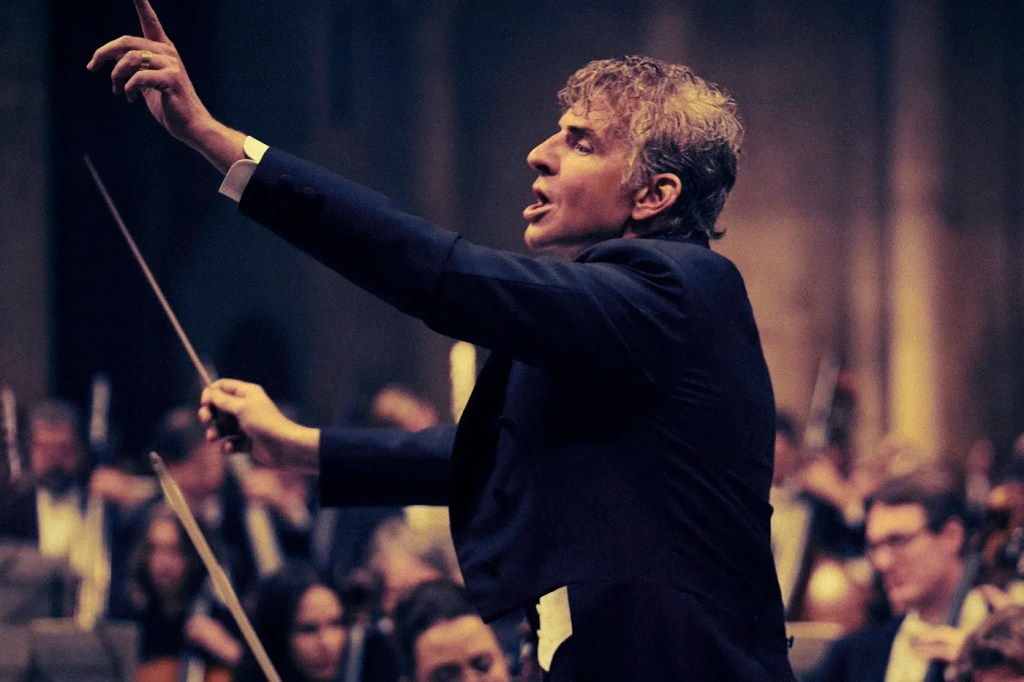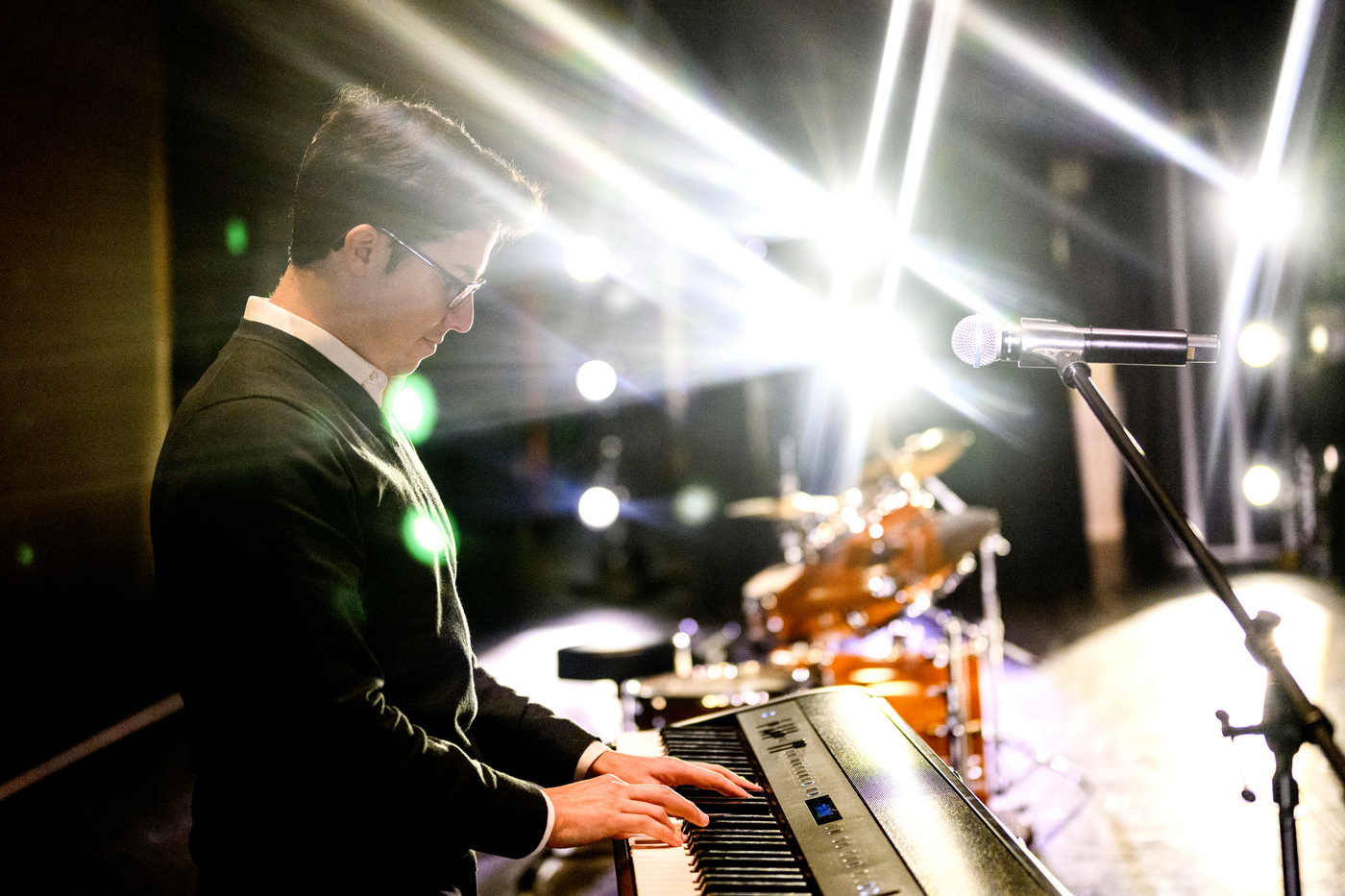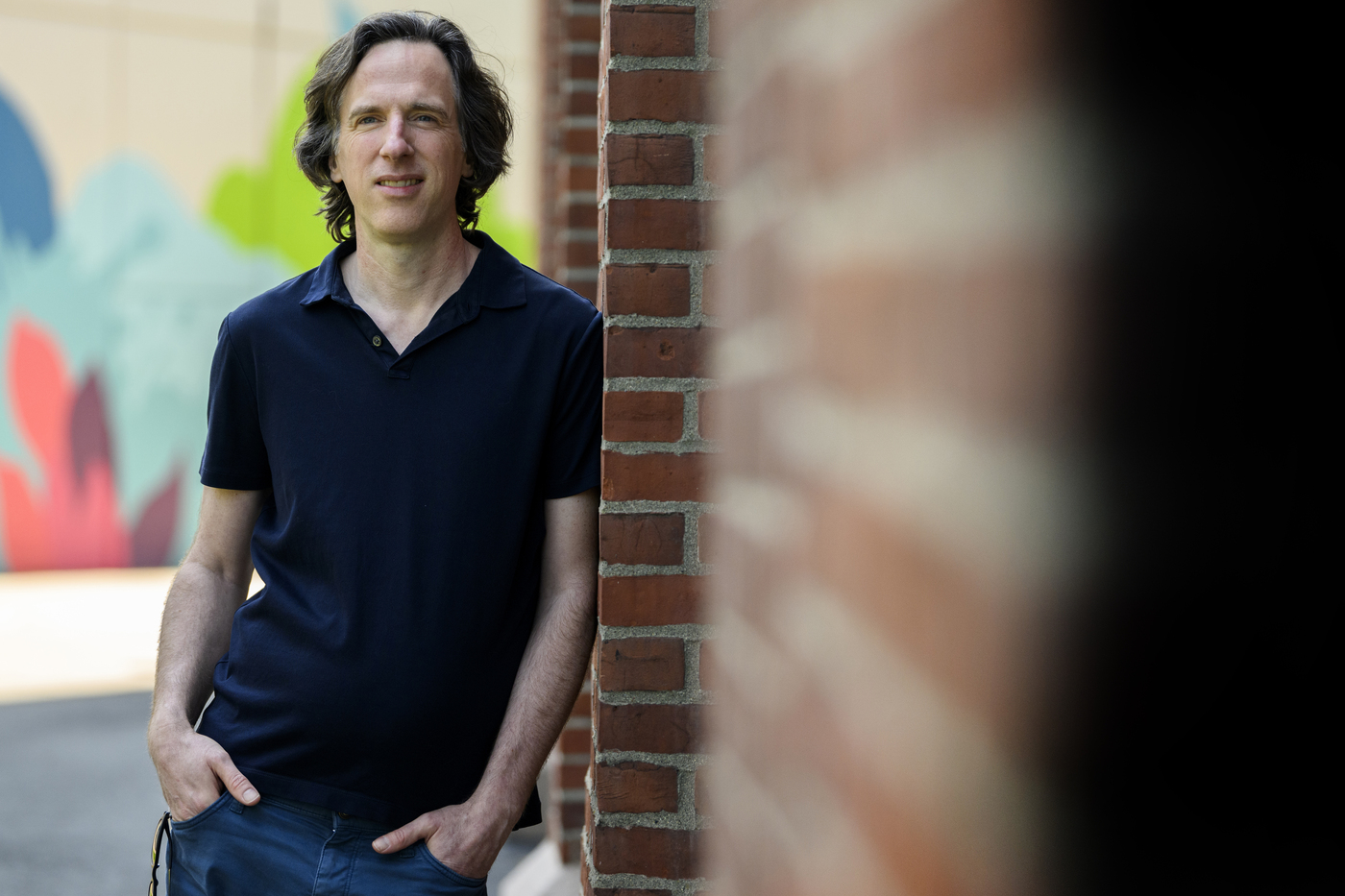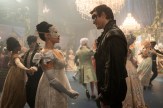Who is Leonard Bernstein, the ‘Maestro’ at the center of Bradley Cooper’s new movie?

Film and music fans both have reason to celebrate: Bradley Cooper’s long-in-the-works film “Maestro,” which tells the story of the complex relationship between legendary composer/conductor Leonard Bernstein and actress Felicia Montealegre, is finally here.
Following in the wake of Cooper’s accomplished 2018 directorial debut, “A Star is Born,” “Maestro” seemingly confirms the actor/director’s obsession with music, creativity and the difficult geniuses who use one to make the other. But this time around Cooper, who also plays Bernstein, is telling the story of a real person –– and one of the most famous musical figures of the 20th century.
If Bernstein’s name isn’t familiar, his music probably is. Bernstein’s work as a conductor and composer –– along with his big personality and commitment to music education –– made him one of the first American conductors and composers to receive international acclaim. He brought showmanship to symphony hall and a passion for bringing classical music to the American masses. Bernstein, best known for composing the Broadway musical “West Side Story,” also worked on orchestral music built for concert hall and operas, ballets, film scores and musicals.
But what made Bernstein stand out as a conductor and composer, enough that Cooper would make a movie about him?

From the moment he stepped in as a last-minute conductor for the New York Philharmonic Orchestra in 1943, Bernstein was a star, both because of his talent and sheer physical presence. He later served as music director of the orchestra for 11 seasons.
“From a conductor’s perspective, he brought a lot of energy and vivaciousness and helped resurrect the New York Philharmonic and even the symphony tradition in the United States, which was starting to decline,” says James Gutierrez, assistant teaching professor of music at Northeastern University. “He did that through his energy and through his articulation. He was a master communicator.”
Bernstein’s physical presence onstage is a natural fit for the big screen, says Matthew McDonald, an associate professor of music at Northeastern.
“Even if you just focus on the visuals of his conducting, he was so theatrical in his movements and so expressive with his body, almost kind of dancing at times,” McDonald says.
But underneath the showmanship was a sharp focus on strong, sometimes quirky rhythms and tempos that matched his physical intensity. Regardless of what he was conducting or composing, Bernstein’s personality and voice was at the center. Even his interpretations of other composers’ work were undeniably Bernsteinian.
“He put his stamp on a piece in a way that you either liked it or you didn’t,” McDonald says. “There’s this [Dmitri] Shostakovich piece, the fifth symphony, where at the end of that in the last movement, [Bernstein] takes quite a fast tempo. It’s different from other interpretations I’ve heard of it. It just makes you hear the piece in a different way.”
Bernstein also expanded the idea of what music could be played in concert halls beyond the work of the same European composers that audiences were used to hearing. Through his own work and constant championing of composers like Andew Copland, William Schuman and Charles Ives, Bernstein helped put American classical music on the map, McDonald says.
As a composer, he fused classical sounds with Jewish music, Latin music and popular American styles like jazz, always with an ear toward melody.
But Bernstein’s legacy, as a man and a musician, is now seen as more complex than in the past.

There’s a reason his personal life, which “Maestro” focuses on, is rife for the kind of inter- and intrapersonal drama that Cooper was probably attracted to as an actor and director. Bernstein was a gay man living at a time when openly acknowledging his sexuality was far from possible. He had several affairs while he was married to Montealegre (played by Carrie Mulligan in the film) and at one point even left Montealegre for a man, only to reconcile with her later before she died of lung cancer in 1978.
He was also a social activist who, throughout his life, advocated for humanitarian causes and social change, from civil rights to the AIDS crisis. He intentionally employed dancers from marginalized groups in his ballets and, in 1944, featured Japanese and Black dancers “in order to push against xenophobia and racism during World War II,” Gutierrez says.
During the McCarthy era, it was enough to get the FBI to open a file on him that would eventually stretch 800 pages.
Musically, the history is still being written on what Bernstein’s legacy ultimately will look like, Gutierrez says. His work as a conductor, composer and pianist were all in service of his larger mission: to bring classical music out of the concert hall and into the public consciousness.
Bernstein spread awareness about classical music to new generations through his many televised concerts and his ability as a master communicator. But Gutierrez says that all that work also helped cement a sense of prestige around classical music and the orchestra that says “this is real music.” He embraced other genres –– he famously said he likes 5% of rock music –– but in his focus on structure and theory as a composer and educator, he still had a specific musical hierarchy in mind.
“That’s a hidden narrative –– I don’t think Bernstein ever said that directly –– but it was partly through the show, through the applause, through the center of gravity that he was in that time period,” Gutierrez says. “We’re still in the shadow of that in some ways.”
The shadow Bernstein casts over the world of American classical music is huge, to the point that it sometimes seems like the U.S. hasn’t moved past him and his legacy. When Gustavo Dudamel joined the New York Philharmonic, the first thing everyone asked was: Is he the next Leonard Bernstein?
“There’s only been one Leonard Bernstein, but there’s a desire for another,” McDonald says. “I don’t think in our culture today you could ever have someone like that in classical music.”
Cody Mello-Klein is a Northeastern Global News reporter. Email him at c.mello-klein@northeastern.edu. Follow him on X/Twitter @Proelectioneer.






